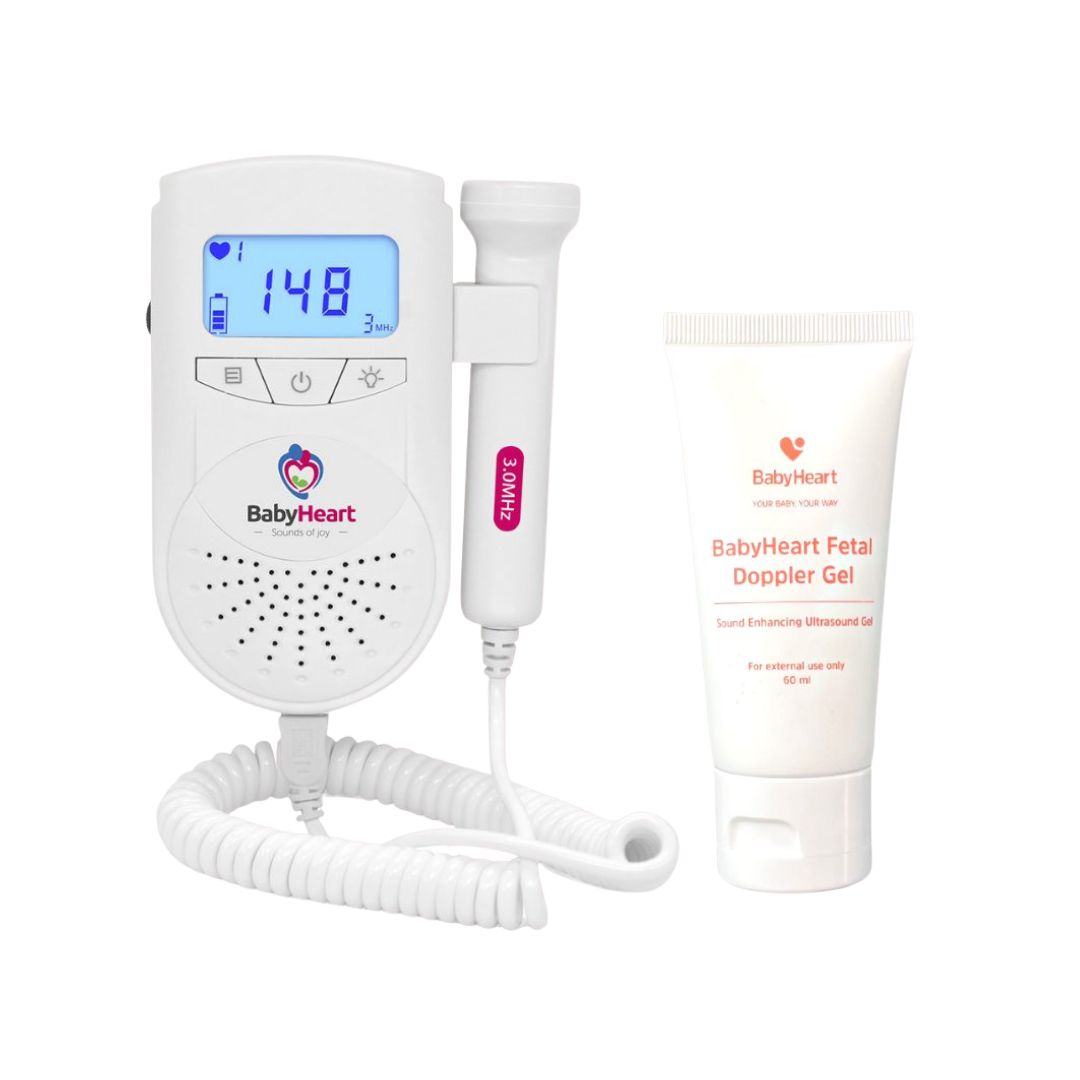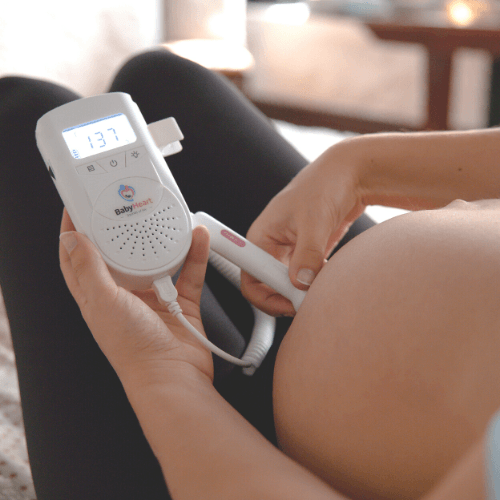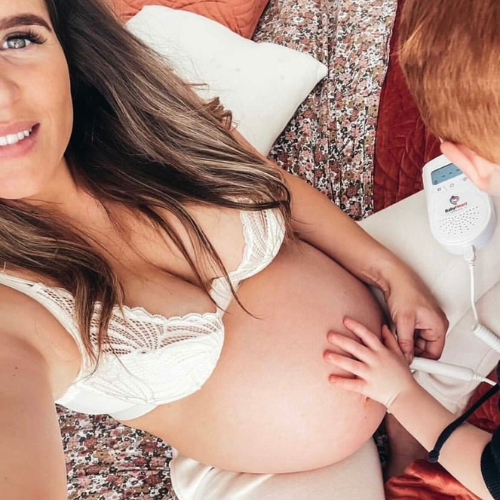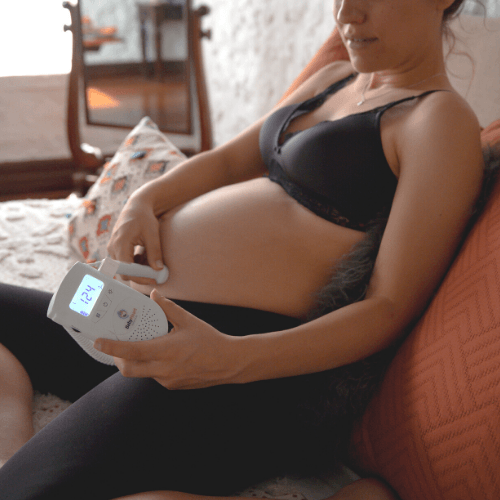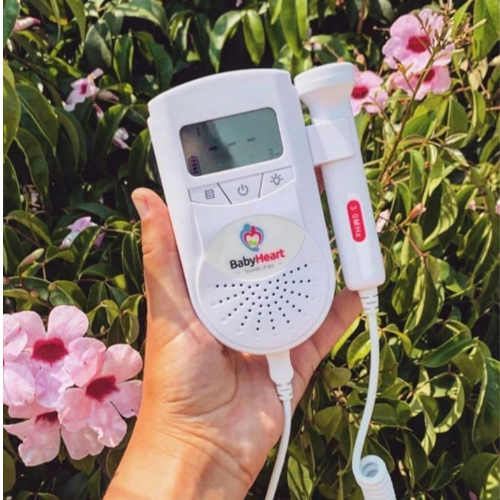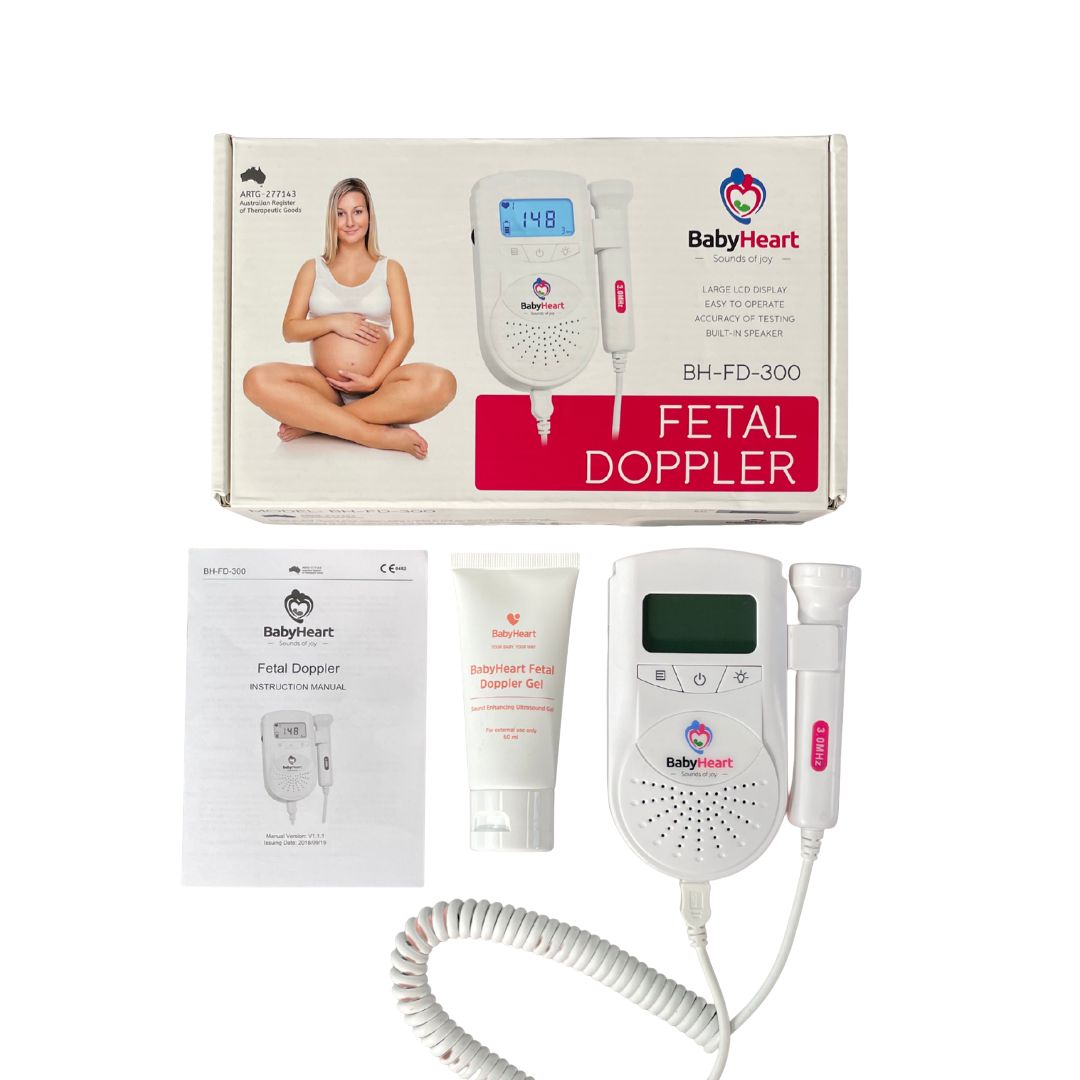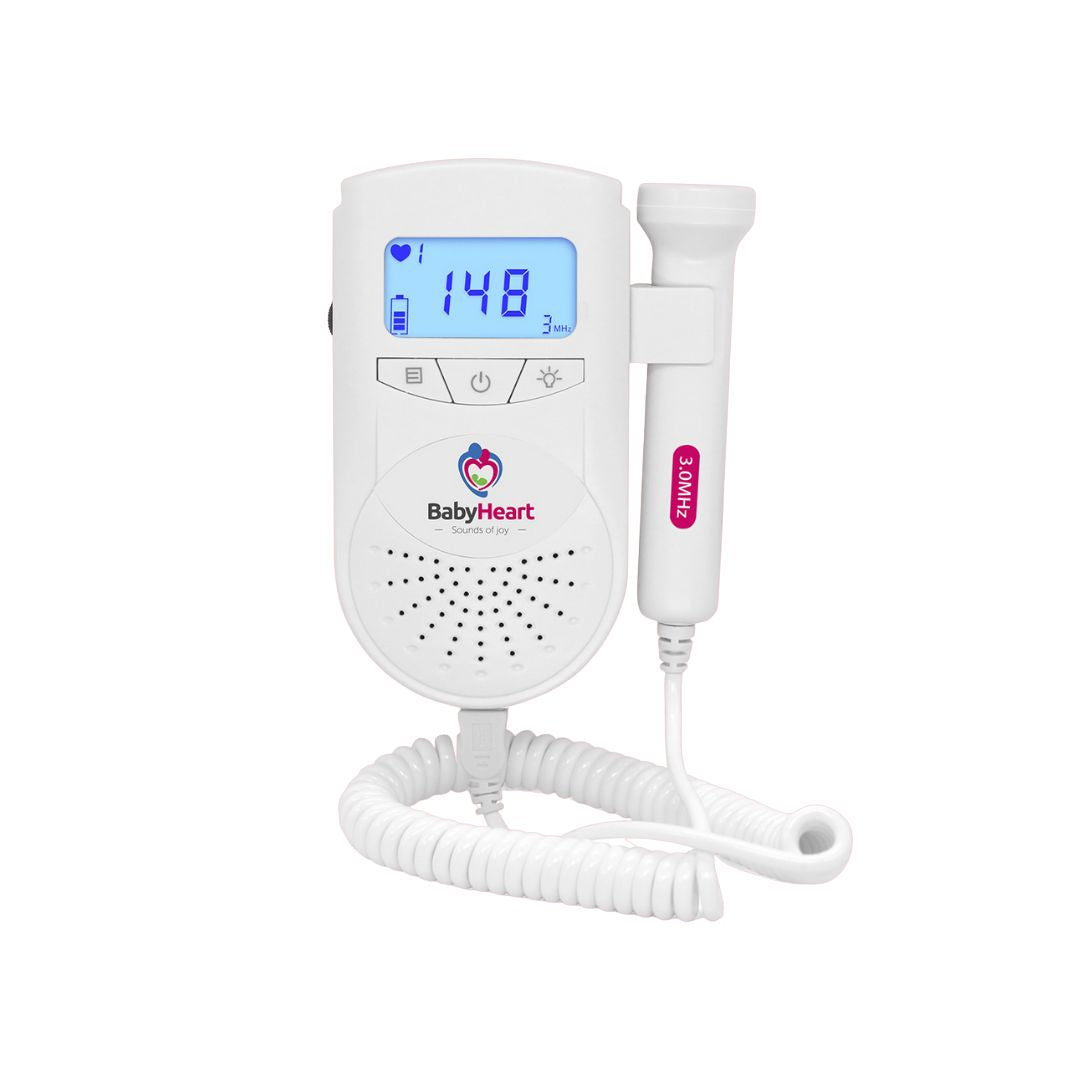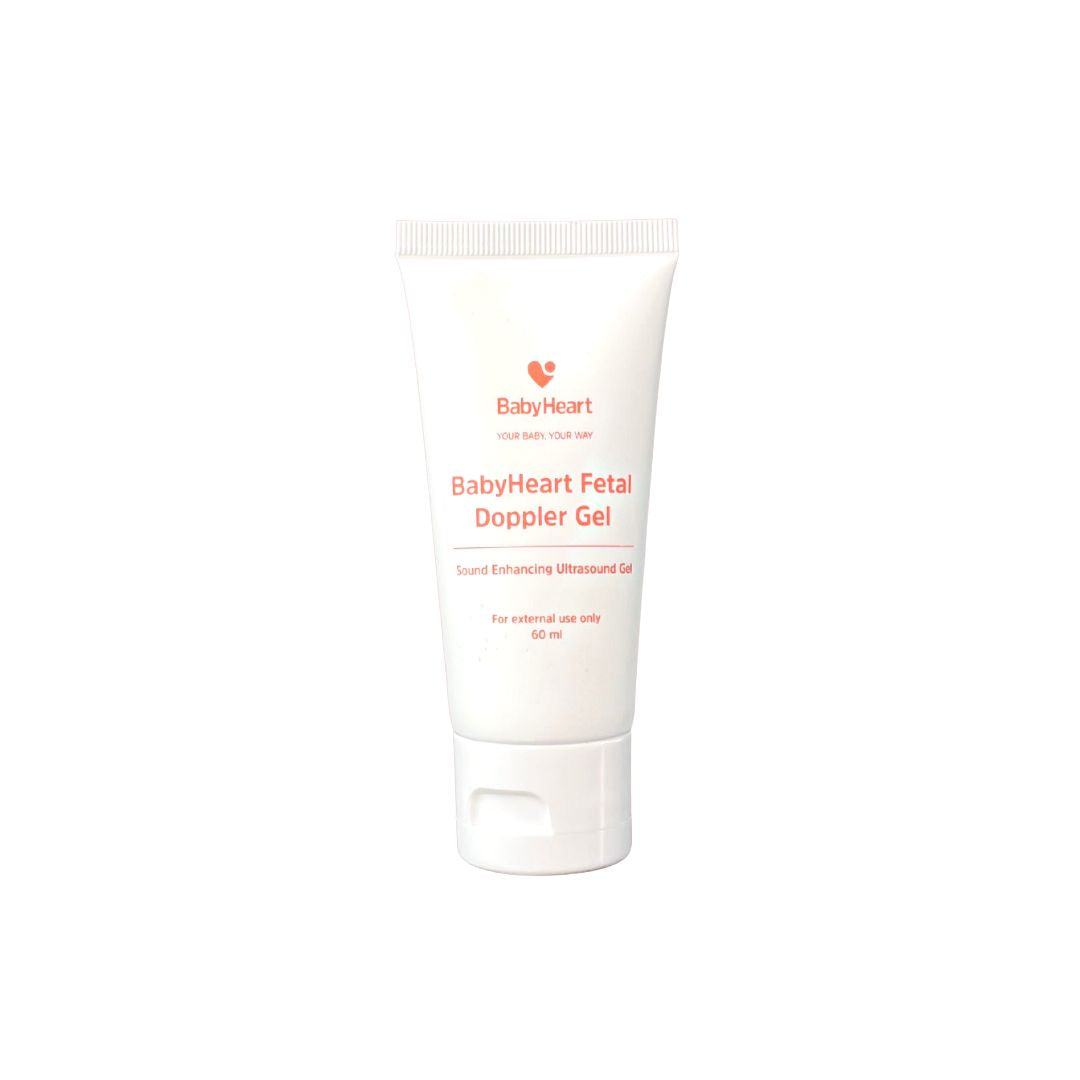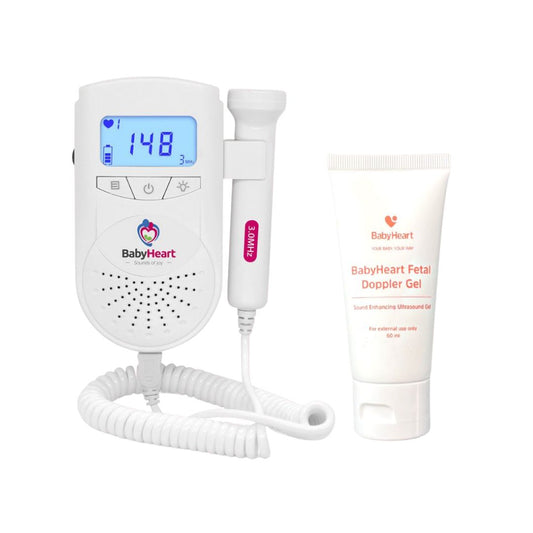
If you’re expecting, it can be such an exciting experience to see glimpses of your baby at your ultrasound appointments - and naturally, you want to see your baby more often!
That’s why many women are turning to using Fetal Dopplers at home to connect with their baby and hear their heartbeat, an experience that brings joy and facilitates bonding.
If you’d like to try using a Fetal Doppler yourself, read on for our 5 must-know tips on how to use a fetal doppler.
What's a fetal doppler?
A fetal doppler is an at-home device used to hear a baby’s heartbeat while inside the mother’s womb. The device comes with a probe to glide over the baby bump and using either in-built speakers or headphones, you are able to listen to your baby's heartbeat. Some fetal doppler models will also show you your baby’s heart rate on an LCD screen.
How do fetal dopplers work?
Fetal doppler technology is based on the “doppler effect,” discovered by Christian Doppler, an Austrian mathematician and physicist. The doppler probe sends ultrasound waves into the lower abdomen, where these waves are then reflected from the baby's heart.
The doppler converts the frequency change into a sound, and that's how we hear the baby's heartbeat. Although at-home dopplers are relatively new, fetal dopplers have been used my midwives, doctors and obstetricians since the late 1950s.
Doctors and midwives today still use doppler technology - at your ultrasound appointments, your doctor will use a sophisticated doppler and ultrasound machine to give you greater detail and insights into the health of your baby.
Why use a fetal doppler?
At-home fetal dopplers use waves that are around 40 times lower than those emitted from a professional ultrasound machine, so they're perfectly safe to use at home and present a unique, connecting experience between parents and unborn baby.
Hearing your baby's heartbeat is an amazing experience and at-home fetal dopplers give you the ability to share that with friends and family - and even to record the sound as a cherished keepsake of this special time.
Since the mother is the only one who can experience the pregnancy, partners may feel left out at times; however, the fetal doppler allows them to feel more connected to their child.
You might also like to try speaking to your baby or massaging your baby bump whilst using the fetal doppler, and see how your baby responds to your voice and touch.
How do I get started using a Baby Heart fetal doppler?
Using a baby heart monitor is easy, once you know how!
Tip 1: Be prepared.
First, gather your materials. Inside the packaging of your Baby Heart fetal doppler is everything that you'll need to set up your machine. You'll also need some ultrasound gel - a simple solution that acts as a lubricant and helps seal the bond between the doppler device and the womb, whilst making the precise detection of a heartbeat easier.
Tip 2: Make sure you’re comfortable.
Once you've taken everything out of the box, find a comfortable place to recline. For best results, it's recommended to use it whilst lying down flat. Sometimes it can take a little while to locate your baby's heartbeat, so make sure you're lying down somewhere that you're going to be comfortable - a couch, bed, reclining chair or even the floor, wherever you're easily able to relax.
Tip 3: Stay calm.
It's an exciting experience waiting to hear your baby's heartbeat for the first time on a fetal doppler! However, it's normal for it to take a little time to locate the heartbeat, so make sure to keep yourself in a state of calm relaxation. It will make the process easier, and will help keep your excitement from turning into anxiety. This is a fun experience, so be patient and enjoy the process.
Now, with your abdomen exposed, apply the ultrasound gel to your lower belly. Make sure to use a liberal amount to get the best coverage possible! Then apply the gel to the Fetal Doppler too, and turn on the device.
Tip 4: Cover every surface.
Starting at your pubic bone and working your way up, glide the probe upwards towards your belly button. Move the probe slowly across your belly until you find your baby - make sure to touch every part of your belly! When you find the heartbeat, it will usually sit at around 120 BPM or higher, as a guide.
Once you're completed with the procedure, you can turn off the device and make sure to thoroughly clean the probe to use again in the future. It is recommended that you don’t use a fetal Doppler device until the 12th week of pregnancy.
You might not hear the heartbeat until the 14th-16th week however, this can be different from person to person.
Tip 5: Get the timing right.
If you have trouble finding the baby's heartbeat, keep in mind that it may be easier to find your baby first thing in the morning, when your belly is generally less bloated. And using the fetal doppler when you have a full bladder will also make it easier to hear your baby's heartbeat.

Which BabyHeart Fetal Doppler model should I choose?
Each model comes with different options depending on your budget and needs - there's something for everyone, as we believe that everyone should be able to experience the joy and connection of listening to their baby's heartbeat!
For something small, lightweight and easy to use, you can't go wrong with our Mini Doppler. For a more feature-rich experience, our Standard Doppler comes with an LCD screen so that you can also see your baby's heartbeat, and a speaker for a greater listening Doppler also comes with a visual heart wave monitor, which makes for a truly unique experience of bonding with your unborn child.
Click here to compare models and find the right Fetal Doppler for you!
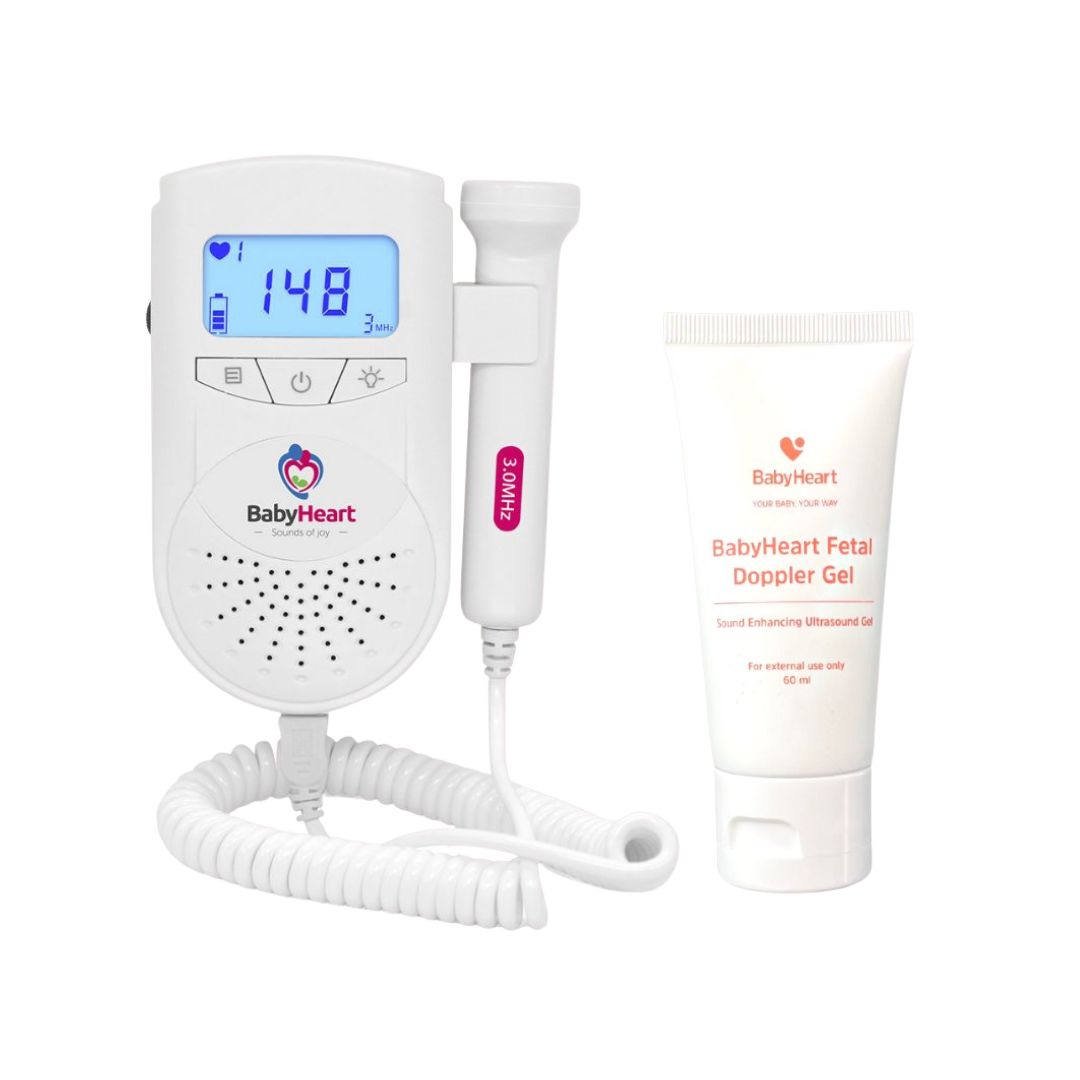
 Order today and receive a complimentary, large 250mL Gel valued at $19.99!
Order today and receive a complimentary, large 250mL Gel valued at $19.99!